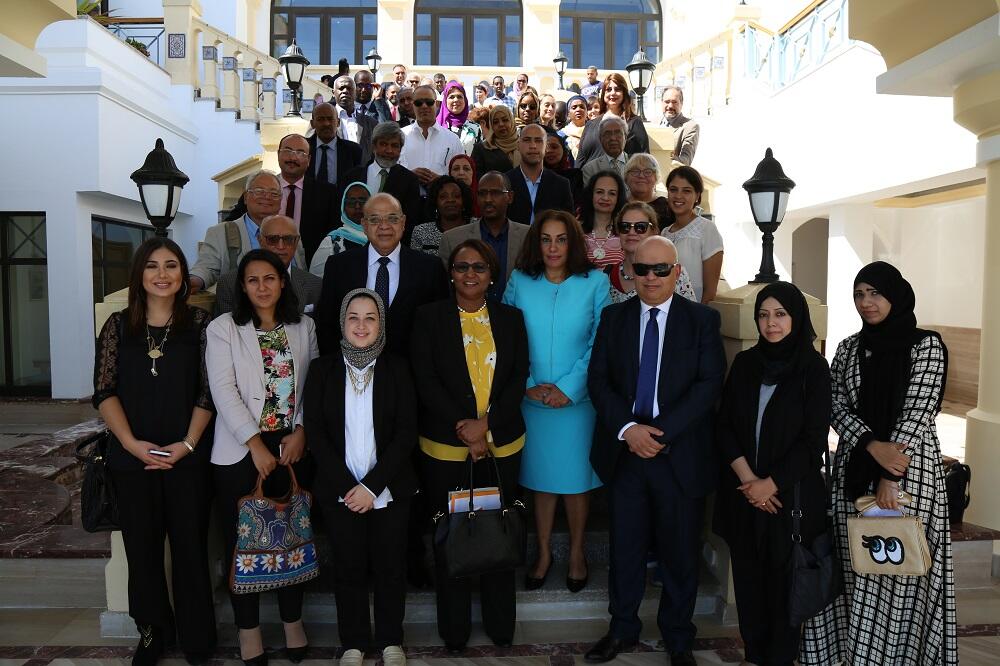The UNFPA Addis Ababa Liaison Office to the African Union Commission (AUC) and the United Nations Economic Commission for Africa (ECA) is working closely with the AUC to galvanise political commitment to eliminate Female Genital Mutilation (FGM) in Africa. Ongoing efforts are guided by a joint Plan of Action between UNFPA and the AUC. These efforts are coordinated by the Health, Nutrition and Population (HNP) Division of the AU Commission of Social Affairs.
As part of the joint efforts on the continent to end FGM, the AUC and UNFPA are working at the continental, regional level and with Member States to address the legislative policy and legal environment and financing gaps, together with supporting communities to engender a social paradigm on FGM.
A key issue the joint programme works to address is FGM medicalisation. In many countries, there is increasing incidence of FGM medicalisation – a worrying trend. FGM medicalisation refers to genital cutting that is done by health care providers with the pretext of reducing risks, pain and ensuring the practice is done in a safe manner. However, FGM has lasting effects including psychological, gynaecological and obstetric complications.
Reversing this trend is key. The joint programme has been working closely with local partners to ensure systemic actions are being taken to provide training and prevent medical personnel from conducting FGM.
Key Developments
- Kenya: health-care service providers are being supported to exchange information, expertise and experiences as key expert witnesses to assess whether girls have undergone FGM/C.
- Somalia: following FGM being outlawed in 2014, the Ministry of Health signed a Decree against FGM medicalisation.
- Nigeria: the nursing fraternity is taking the lead and bringing attention to the issue of FGM medicalisation in the country.
- Egypt: the joint programme worked closely with the Supreme Council of Universities to introduce training on FGM in the “medical curricula of physicians and nurses at the beginning of their medical training” as a way of reversing the medicalisation trend in the country.
At a meeting in Sharm El Sheikh, Egypt from 25th – 26th of September 2017, the UNFPA Arab Regional Office (ASRO) and the League of Arab States, together with partners from across the region and continent engaged doctors and other stakeholders to examine " The Role of Health-Care Institutions in Combating FGM". The UNFPA ELO provided close support to the African Union Commission to engage in this space. The AUC representative provided extensive analysis of the commission’s architecture and frameworks that look to ban and promote abandonment of FGM. This included legally binding instruments such as the 2003 Protocol to the African Charter on Human and People’s Rights on the Rights of Women in Africa (Maputo Protocol) and the African Charter on the Rights and Welfare of the Child (ACRWC), provisions in Africa’s 2063 Agenda to eliminate harmful practices and Target 5.3 of Sustainable Development Goal 5 on eliminating harmful practices, including FGM.



